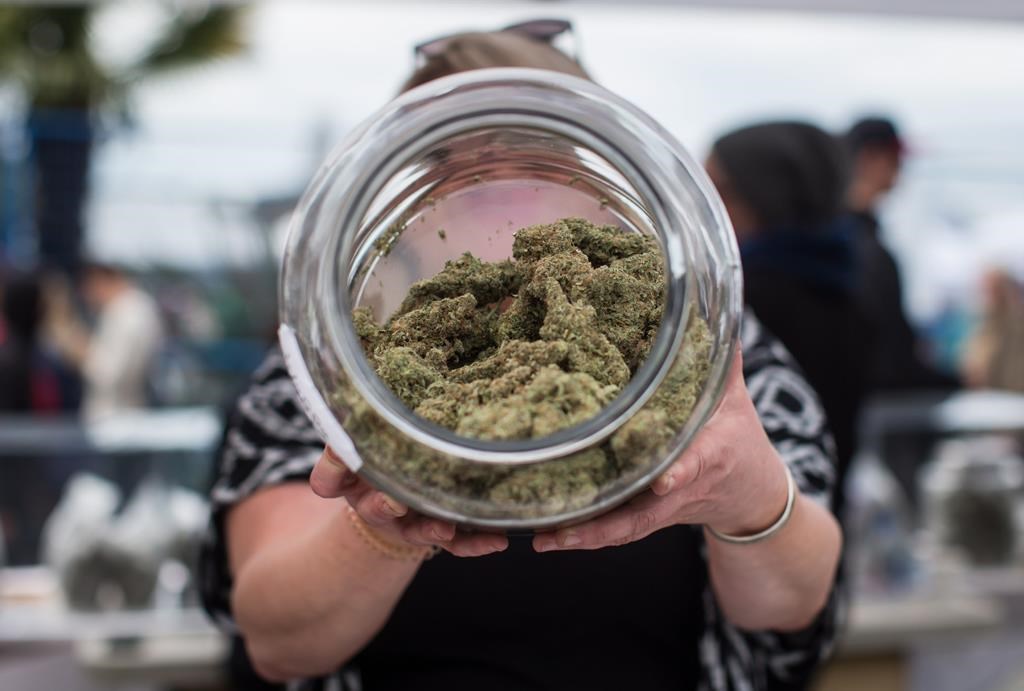With less than a month to go before recreational cannabis is legal, the Canadian government wants to launch dual studies into how it is being sold on internet black markets and whether Canadians are more honest on social media than in formal surveys when it comes to how they use cannabis.

Both tenders were issued Wednesday morning and each sets out that the work done under them will go to Public Safety Canada as it works to come up with informational campaigns to prevent behaviours like driving while high and methods to better crack down on illicit online sales once the substance is legal on Oct. 17.
READ MORE: Canadian weed stocks are skyrocketing as legalization looms: But should you invest?
“The goal of this project is to examine Canadian social media sentiment toward cannabis legalization, with emphasis on public safety issues, such as driving after using cannabis,” the first tender states.
“Overall, this research intends to inform policies surrounding public safety issues that accompany cannabis legalization (e.g., targeted evidence-based communications strategies about public safety risks of driving after using cannabis).”
WATCH BELOW: Is Coca-Cola getting into cannabis?

In addition to attitudes towards driving while high, the study also plans to mine public opinion online to get a better sense of how Canadians buy, sell and share cannabis, criminal activities associated with cannabis use, how often Canadians use cannabis and in what format and where, and what they think about legalization.
The second tender says that in order to measure whether legalization is reducing criminal involvement in the cannabis market, which the federal government has said is its motivation for legalization and regulation, officials want more data on how criminals are using the internet to sell cannabis now.
It references a study from 2016 that found cannabis was the most popular drug sold on the dark web, accounting for one-third of all drug transactions online.
READ MORE: Will imported marijuana ease a shortage after October 17?
Canada, the tender also notes, was identified by the European Monitoring Centre for Drugs and Drug Addiction in 2016 as one of the top five countries that illegal drugs sold online come from.
“What is unclear, is the number of illegal, online transactions that occur in Canada, as well as the proportion of cannabis that is traded on the internet,” the tender states.
“The general goal of this project is to estimate the extent to which cannabis is illicitly bought and sold by Canadians on cryptomarkets, identify trends in the buying and selling behaviours of Canadian cryptomarket users, and discuss the policy and law enforcement implications of cryptomarkets within a Canadian context following legalization.”
WATCH BELOW: Cannabis industry concerns about crossing U.S. Border

Legalizing cannabis was a key campaign pledge of the Liberals in 2015.
Prime Minister Justin Trudeau announced earlier this year that cannabis will be legal as of Oct. 17, though it will not be legal to consume it in edible forms such as cookies, brownies and other foodstuffs.
READ MORE: Statistics Canada crowdsourcing info for government pot prices
The federal rules set baseline limits on consumption and production for individuals but the provinces and municipalities have been responsible for determining whether it will be sold in public or private venues, and what the limits will be on where it can be consumed in public areas.
It is not the first time the government has issued studies to better understand people’s behaviour when it comes to cannabis.
Last year, Statistics Canada turned to crowdsourcing data on pot prices in the hope of setting a price for legal cannabis that wouldn’t give people incentives to stick with their drug dealer rather than buy from overpriced legal stores.
Sales of recreational cannabis are expected to be worth roughly $8.7 billion once legal.
- Life in the forest: How Stanley Park’s longest resident survived a changing landscape
- ‘They knew’: Victims of sexual abuse by Ontario youth leader sue Anglican Church
- Carbon rebate labelling in bank deposits fuelling confusion, minister says
- Senator references ‘Trumpian denialism’ in foreign interference debate around China




Comments